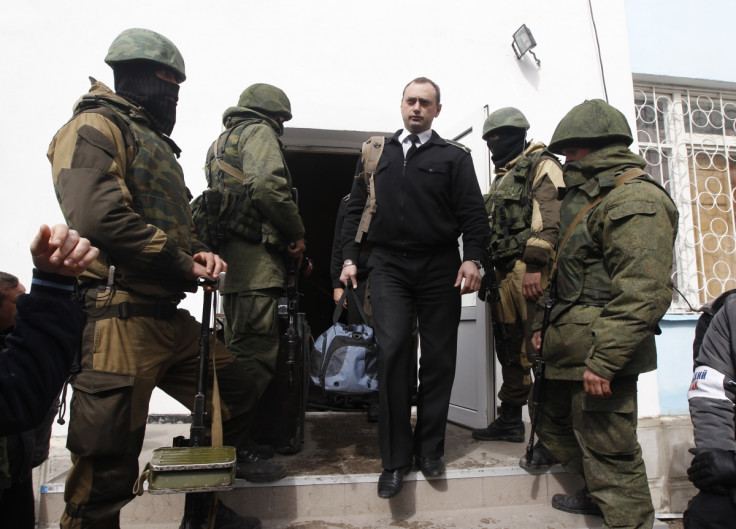Ukraine Appoints New Defence Minister as Troops Begin Crimea Withdrawal

Ukraine's parliament, or Rada, has accepted the resignation of interim defence minister Igor Tenyukh following the formal annexation of the Crimea peninsula by Russia.
Tenyukh, who was under fire for the military slow response to Russian invasion in the Black Sea peninsula, rejected criticism that he had failed to issue clear instructions to troops.
"We prepared nine military units in Kyiv [Kiev] and Kyiv Oblast to accommodate the militants and I need to stress that all Ukrainian troops will be redeployed to the mainland," he said.
Lawmakers appointed Col Gen Mikhail Kovalyov as his replacement.
Kovalyov, 58, has said "he believes in the armed forces of Ukraine".
Ukraine's interim president Oleksandr Turchynov called Russia's annexation of the country's Crimean peninsula "our general tragedy".
The new appointment came as thousands of troops started withdrawing from Crimea.
Before the resignation, Tenyukh said that he had received requests to leave Crimea from about 6,500 soldiers and family members - meaning about two-thirds of the 18,800 military personnel and relatives stationed there were prepared to take their chances in the newly absorbed region.
"Four thousand three hundred servicemen and 2,200 family members wish to continue serving in Ukraine's armed forces and will be evacuated from the autonomous republic of Crimea," Tenyukh said.
Ukraine's authorities said the leader of one of the country's most prominent far-right groups was been killed during a police raid.
The interior ministry said police moved in to detain Oleksandr Muzychko, aka Sashko Bily, one of the leaders of the nationalist Pravy Sektor (Right Sector) party, after they found him at a café in the western Ukrainian city of Rivne. He was killed in the incident.
The role of Muzychko and Right Sector in post-revolution Ukraine was seized upon by Russia to argue that Kiev had been taken over by fascists and neo-Nazis, thus justifying Moscow's military intervention to protect ethnic Russians in Crimea.
© Copyright IBTimes 2025. All rights reserved.






















